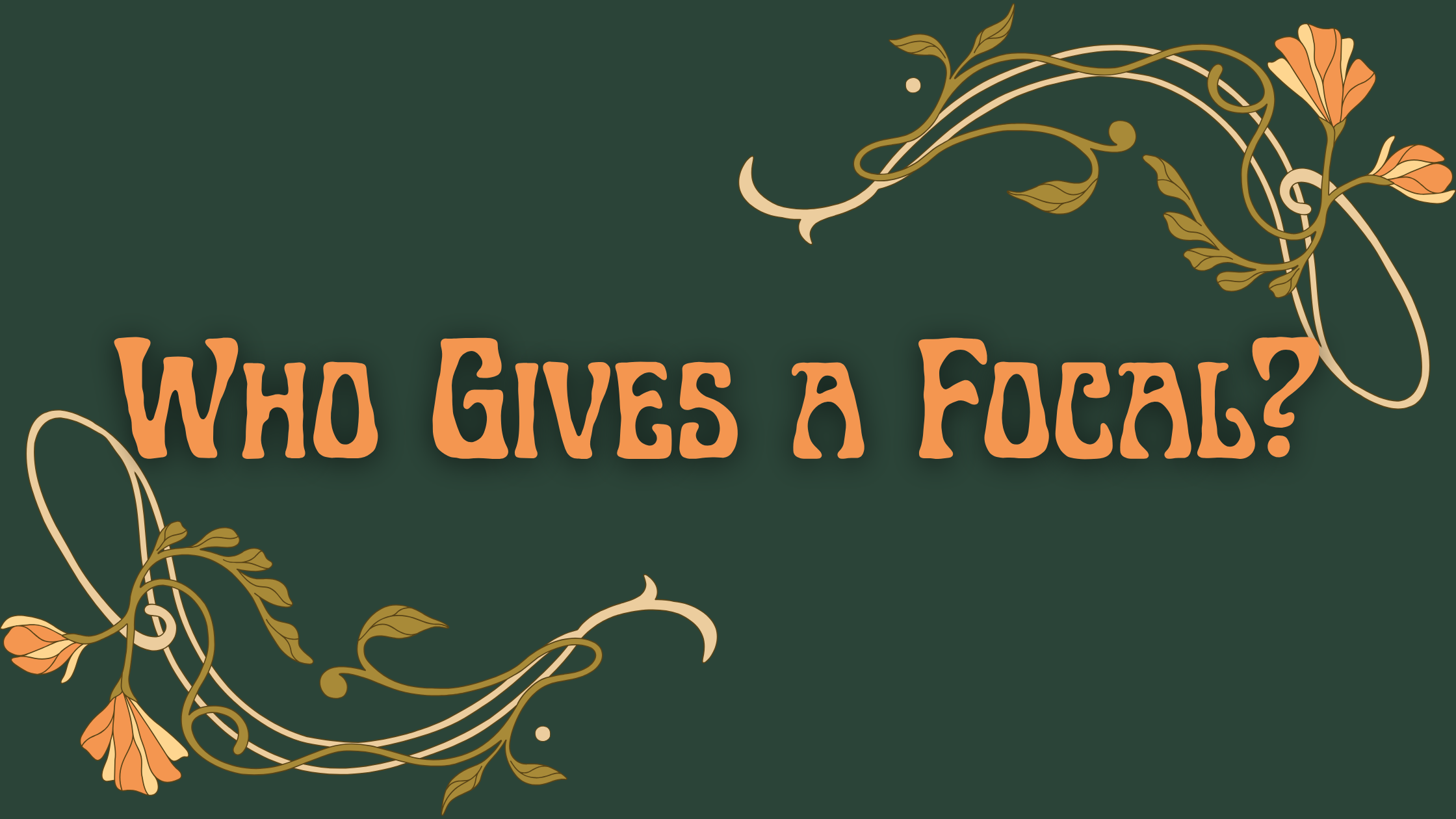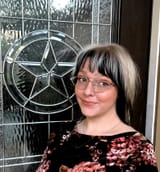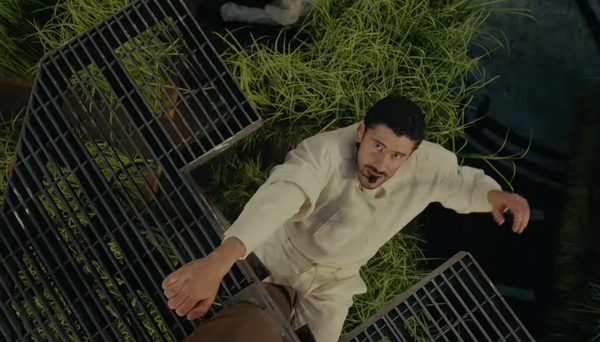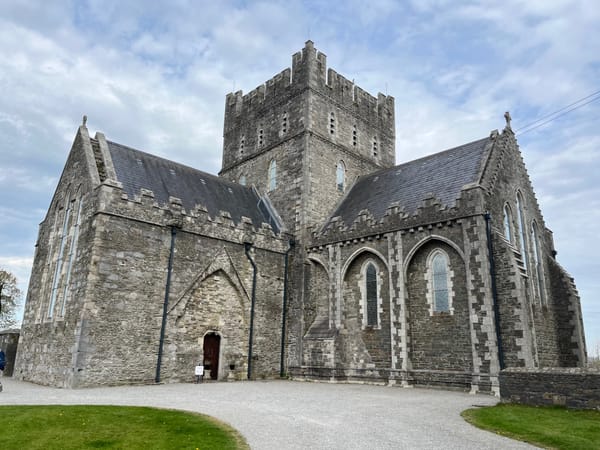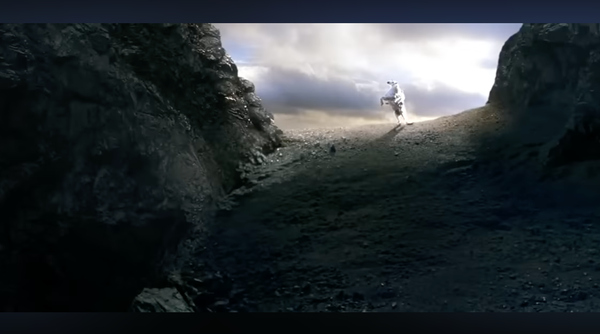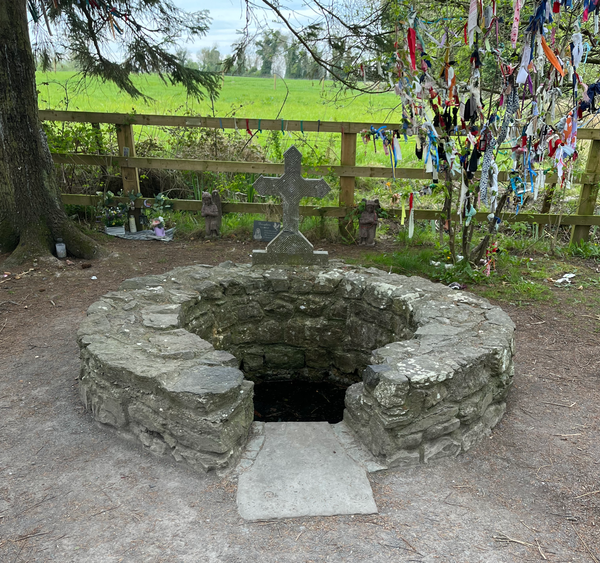"V for Vendetta" Is an Unflinching Love Story Amid Fascism
While V offers us an ideal, it’s really Evey who shows us that fear can be overcome in pursuit of that ideal.
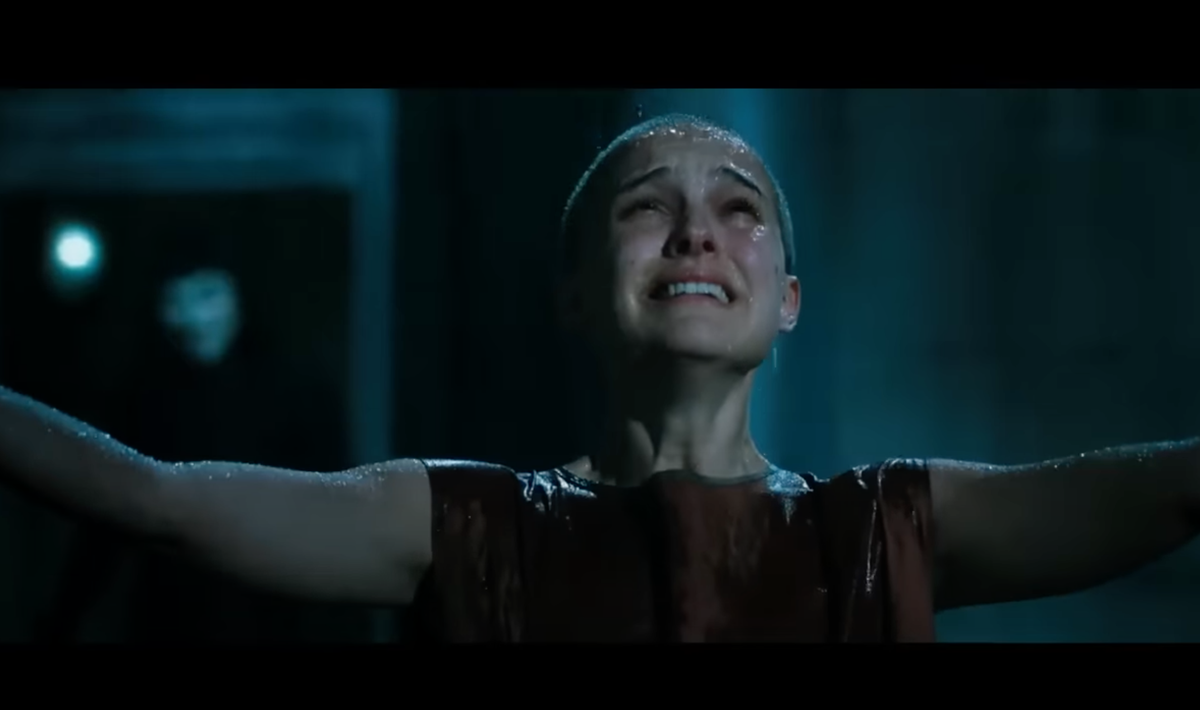
While most people are rewatching Gilmore Girls (I mean me too, bestie) and Hocus Pocus, I've been reading and watching a lot of dystopia. For me, this is a strange development. When I was in high school, I almost never wanted to engage with anything that had to do with zombie viruses, extreme weather, or wars that tear the world as we know it asunder. I suppose it’s because I grew up when we thought the world would end in 2012, that the rapture was coming, or that the magnetic poles of the earth would switch and the birds would fall from the sky. There are very few major global events of my childhood where my anxiety was ever soothed by any authority in my life. So why would I think there would be comfort at the end of a movie or book that is about the destruction of everything I know and love? Turns out not much has changed, and I feel as ill-prepared as Evey Hammond in the beginning of V for Vendetta (2005), the film by the Wachowski sisters which is based on the comic of the same name by Alan Moore and David Lloyd.
Fascism is here in the our real world U.S. just as it is in the fictional Britain at the beginning of V for Vendetta. We meet the protagonist, Evey Hammond (played by Natalie Portman), who has a run in with “the Fingermen,” or the equivalent of secret police. They are one part of a multipronged police state that includes the Eyes, the Ears, the Mouth. You get the idea. As they attempt to use their power to assault her, she is rescued by V (Hugo Weaving), a masked vigilante in a Guy Fawkes mask. After dispatching the Fingermen, V whisks Evey away where they watch the explosion of the Old Bailey that V has rigged.
As the police begin their frantic search for V, they lock in on Evey, who works at the country’s broadcasting network, which airs a number of frivolous TV shows that distract the public, but also the Rush Limbaugh-esque Lewis Prothero. It's here in this TV station that V makes his goals known. He hijacks the broadcast and shows his own video urging the masses into action. But he doesn’t mince words about how this world came to be one of mass surveillance and fascism:
Certainly there are those who are more responsible than others and they will be held accountable, but … If you are looking for the guilty, you need only to look into a mirror.
This message continues to be blasted into the white middle-class homes of the country as police scurry to end the transmission. V explains that he understands the coercion used to manufacture consent within the populace: how fear played its biggest role in electing the fascist Adam Sutler in order to save them from famine, war, the collapsing climate. Moore and Lloyd similarly do not mince words within the comic in describing the fallout from such scapegoating as they frequently cite the genocides of nonwhite people, LGBTQ+ people, and anyone deemed other.
Evey herself, once she is taken to V’s Shadow Gallery—a place where he has collected films, books, music, and art that has been systematically removed from society—describes this fear within herself: “I wish I wasn’t afraid all the time, but I am.” Having seen her own parents disappeared for their political work before her eyes as a child, she knows the terror that can rain down upon her.
Abolitionist Mariame Kaba speaks on this fear a lot. Most people, especially white people, don’t want to lose what stands to be lost from speaking up—jobs, their families, their homes, their lives. As we experience collapse in real time, I must admit that I don’t want to lose those things either, do you? It’s the same fear that propels the world of V for Vendetta, and while V offers us an ideal, a Billy Badass with a belief in justice and a better world, it’s really Evey who shows us that fear can be overcome in pursuit of that ideal.
While Jimmy Kimmel was getting yanked off the air (the film predicts this too with a character played by Stephen Fry), for factual comments about Donald Trump, I was spending time with friends and their 1-year-old daughter. After celebrating said daughter's first birthday on Thursday, my wife and I met with them again on Friday at our local library. One of my friends—an indie comic book writer of 25 years—noticed my stack of graphic novels that I checked out before their arrival: V for Vendetta and Watchmen (also by Alan Moore). I have seen the films, but never read the originals.
My comic writer friend remarked, “You don’t really read Alan Moore to feel good about the world.” I have pondered this statement for days now. While I find that starting V for Vendetta is an even spookier and prophetic practice than the movie, I actually think the reverse of my friend’s statement is true. The world of V for Vendetta is one that Moore and David Lloyd saw coming, and I think when the movie came out in 2005, it probably seemed like an implausible dystopia for the average viewer.
When I read 1984 or Brave New World for school, they always seemed to me like echoes of warnings from a long ago, post/prewar era that clearly we must be heeding. Who would ignore such wisdom? Experiencing V for Vendetta can seem like, as Moore says himself, a little Cassandra-esque, but really it’s the result of noticing patterns and coming to a logical conclusion. Moore merely saw the failure of neoliberalism in the U.K. and the rise of Thatcherism within a couple of election cycles and made art accordingly. That’s really all divination is; an art of recognizing patterns.
The pattern that scares me the most every time I watch this movie is when Evey discovers the story of Valerie while she is imprisoned in the replica Larkhill camp. Valerie was a gay woman and actress amid the war that leads us to the present story. She talks of her life with her lover, how they grew roses. When the war came there were no more roses. They snatched her partner off the street while getting groceries, then herself.
I told my wife I can’t even talk about Valerie’s part in the story because it scares me so much. In it, I see us—two queer women living life amid escalating fascism with our two cats and our affectionately named teach mban draoi, house of Druid women.
In her biography written on toilet paper Valerie writes:
I shall die here. Every inch of me shall perish. Every inch but one. An inch. It is small and fragile and it is the only thing in the world worth having. We must never lose it or give it away. We must never let them take it from us.
It’s these words that, as she’s tortured, strip Evey of her fear because even worse than dying is dying knowing that the authoritarian regime took every last bit of you with it. Who are we if we are silent? Who are we if we have no standard of goodness that we live by? If we live in fear, we are dead anyway.
There are Larkhill facilities all across the U.S., and they’ve been here a very long time. Last week, the Miami Herald reported that hundreds of immigrants that were detained by Immigration and Customs Enforcement at so-called “Alligator Alcatraz” have disappeared from this modern concentration camp as operations have slowed down. Organizer Kelly Hayes reported live at Broadview facility in Chicago after protesters were met with tear gas, militarized force, and arrests earlier in the day. Later, in her newsletter Organizing My Thoughts, Hayes wrote (much like Valerie), “If I had known how ugly Friday night was going to get, I might have had second thoughts about attending … but I know that I am better for having been there—and that it mattered that we were there…. We can fiercely declare that our love and empathy will not be destroyed.”
September 22, marked the Autumn Equinox. It’s a time of transition, where the days and nights are of equal length before we are plunged into the darkness of the rest of the year. Eimear Burke, chosen chief of The Order of Bards, Ovates, and Druids, says that this time can make her uneasy, but once we’ve crested into the darkness, she feels more at ease. Burke also says that druid wisdom keeps us grounded in times of great upheaval. Peace begins in our hearts and moves outwards. Oddly enough, on this cusp, I am also starting to feel more at ease in the dark.
I have been in transition for a couple of months now, a difficult one. So has the U.S., especially in recent weeks with the fallout of the death of a Christo-nationalist demagogue sending us to new fascistic heights. Where I once had no tools at all to approach the many transitions of life, when I had no comfort but in escape, I find the words of Kaba, Burke, Hayes, and Moore and Lloyd much more soothing than when I preempted them with an arms-length between us. Fear and anxiety ruled me most of my life, and I don’t know what comes next, so I still maintain a healthy dose of fear. Like so many others, my body cannot do the all the things it used to be able to, but the antidote to fear is action born out of love.
So on the equinox I cleaned my kitchen, which was sorely needed. I set a simmer pot of apple, lemon, cinnamon, and lavender to boil while I scraped off old candle wax and lit incense on my altar to clear out all the stagnant energy. It is old wisdom to cleanse before you ward your home. I picked herbs for drying in my small garden. I whispered to my wards to restrengthen them as I approach the darkness. I left black coffee in my garden for my ancestors and an apple for Áine by the berry bush. Then, I set about this work that I write to you now. It isn’t much, but it’s something.
Rather than leave you with the rhyme about the fifth of November that captures the imaginations of fans of V for Vendetta, I leave you with Valerie’s words:
I hope that the world turns and that things get better and one day people have roses again. But what I hope most of all is that you believe me and that you understand what I mean when I tell you that even though I do not know you and even though I may never meet you, laugh with you, cry with you, or kiss you, I love you. With all my heart. I love you.
I hope these newsletters find you the way Valerie's letter found V and then Evey after him. I hope they ground you to meet the darkness, the fear. I hope that like Evey, you push the button on the train that becomes the catalyst for more people to act. She says we are all V at the end, and that's true, but we are also all Evey—shaking with fear and all too comfortable to notice the bars hemming us in until someone points them out.
With all my heart. I love you,
Sam
Who Gives a Focal is an entirely free and reader supported publication, which cannot exist without readers like you. We are just getting started and would love for you to support us in our trial months today if you like what we do.
